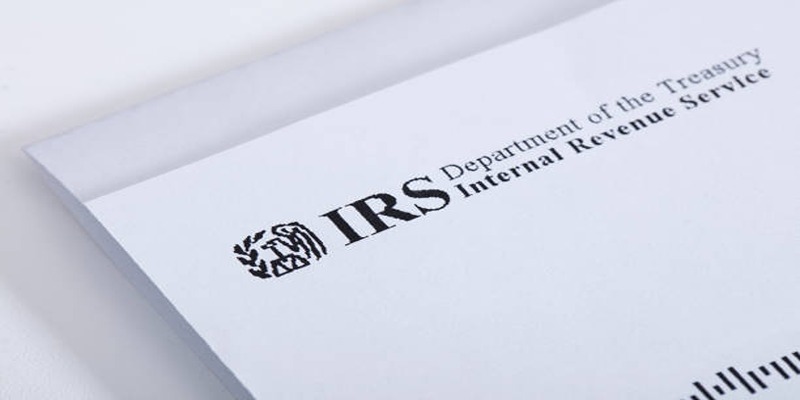The thought of an IRS audit can send shivers down anyone's spine, but with the right approach, you can tackle it with confidence. This guide will take you through the essential steps to handle an audit while demystifying the process. Whether you've received a notice or just want to be prepared, you’ll learn how to stay organized, communicate effectively, and protect your financial interests.
What Is an IRS Audit and Why Does It Matter?

An IRS audit occurs when the Internal Revenue Service examines your financial information and tax return to ensure accuracy and compliance with tax laws. While it might sound stressful, most audits are routine and not a sign of wrongdoing. Understanding this process and preparing for it can save you from unnecessary complications and stress.
Why IRS Audits Happen
- Random Selection: Sometimes, taxpayers are audited simply because their return was chosen at random.
- Red Flags: Unusual deductions or discrepancies in the return might draw attention.
- Related Audits: The IRS may audit your return if it’s connected to an ongoing investigation involving other parties.
Recognizing that audits are often impartial can put some of your initial fears to rest.
1. Stay Calm and Organized
Panicking won’t solve anything. Stay calm, focused, and tackle your audit with meticulous paperwork and organization. A clear, well-prepared approach is your strongest defense for a smooth audit process.
Key Steps to Staying Organized
- Understand Your Audit Notice: Read the IRS communication carefully to determine the reason for the audit and the type of information being requested.
- Gather Relevant Documents: Collect receipts, bank statements, and any paperwork that supports the claims made on your tax return.
- Create a Timeline: Organize your documents in the order of events to make your submission easy to follow.
2. Verify the Audit Request
With the rise in IRS-related scams, verifying the authenticity of audit notices is crucial to protect yourself and ensure your financial security. Stay vigilant and safeguard your personal information.
How to Verify
- Check for Official IRS Details: Look for the IRS logo and contact details on the notice. Fake notices often contain typos or incorrect information.
- Visit the IRS Website: If in doubt, refer to the IRS website for guidance or call their official contact number.
- Respond Promptly: If the notice is valid, respond within the timeframe mentioned to avoid compounding the issue.
3. Hire Professional Help
A tax professional or accountant understands the complexities of the audit process, providing expert guidance and advocacy to ensure your interests are protected and the process is handled smoothly and efficiently.
Steps to Get Expert Assistance
- Find a Reputable Tax Professional: Look for certified accountants or tax attorneys with experience in handling IRS audits.
- Provide Full Disclosure: Be honest with your tax professional and provide all relevant documents to ensure they can best represent you.
- Know Your Rights: Professionals can guide you through your taxpayer rights, such as appeals or requesting more time.
4. Identify and Address Items in Question
Identifying the specific claims being reviewed allows you to create thorough and accurate documentation, ensuring you’re well-prepared to address any concerns or provide the necessary evidence effectively.
Methods for Addressing Audited Items
- Review Your Tax Return: Go through your submitted tax return and compare it with the notice.
- Prepare an Explanation: Write a clear explanation for the items in question, backed by proper evidence.
5. Stay Cooperative with the IRS
Demonstrating cooperation showcases your commitment to resolving issues effectively, fostering trust and leaving a lasting positive impression on auditors by highlighting your proactive and collaborative approach during evaluations.
Tips for Effective Communication
- Speak Clearly and Confidently: Stick to the facts and provide only the information requested.
- Maintain Records of All Communication: Record conversations and keep copies of all correspondence with the IRS for your records.
6. Keep a Written Record of the Audit Process
Audit processes often take weeks or months to complete. Comprehensive documentation serves as a vital reference point, ensuring clarity and alignment for all parties throughout the entire process.
What to Document
- Dates of correspondence
- Copies of submitted documents
- Notes from meetings with the IRS or your tax representative
7. Know Your Rights as a Taxpayer
Taxpayers have legal protections and specific rights during audits to ensure fair treatment. Understanding these rights empowers you to confidently navigate the audit process while safeguarding your interests.
Key Taxpayer Rights
- Right to Representation: You’re entitled to bring in legal or tax representation.
- Right to Appeal: If you disagree with the auditor’s findings, you can challenge them within the IRS or appeal through the court.
8. Negotiate If Necessary
If problems emerge during the audit, you may have opportunities to negotiate settlements or reduce penalties, providing a chance to resolve issues more efficiently and minimize potential financial impacts.
How to Negotiate During an Audit
- Understand IRS Settlement Options: Explore programs like the Offer in Compromise (OIC) for settling lesser amounts than owed.
- Propose a Payment Plan: If you owe money and can’t pay it immediately, a payment plan can ease the financial burden.
Double-Check the Final Outcome

Always review the IRS’s findings thoroughly before signing any audit-related documents. Taking the time to double-check ensures accuracy and helps you avoid potential errors or misunderstandings in the process.
How to Review the Findings
- Compare the IRS findings with your records.
- Consult with your tax representative for confirmation.
10. Consider Future Preparation
An audit doesn’t just end after resolving the case. Safeguarding yourself against future audits requires better preparation.
Tips to Avoid Future Audits
- Double-check your tax filings for errors.
- Keep detailed records of income, deductions, and receipts.
- Stay informed on IRS guidelines and regulatory updates.
Conclusion
Facing an IRS audit doesn’t have to be overwhelming. By staying organized, seeking professional help, and understanding your rights, you can handle the situation with confidence. Remember, preparation is your best ally in navigating the process smoothly. If you’re still feeling unsure, consider consulting with certified tax professionals to ensure you’re fully prepared. They can offer expert guidance tailored to your situation and help you achieve a seamless resolution.












